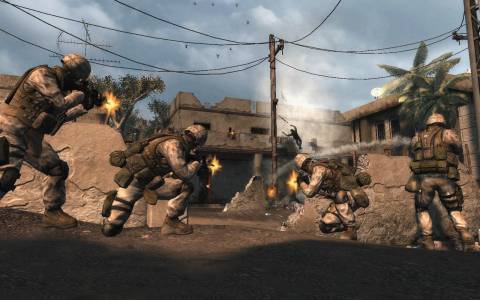
Verisimilitude is par for the course for military games which often tout their faithfulness to real battles and wars. As the capabilities of videogame hardware have burgeoned, the bar for realism in games has been raised. But Atomic Games wants its new release to be more than a game. The company sees it as a new kind of documentary."For us, games are not just toys. If you look at how music, television and films have made sense of the complex issues of their times, it makes sense to do that with videogames," Mr. Tamte says.
What will the game document, exactly? Atomic would likely reference the involvement in this project of dozens of soldiers who fought in the real-life battle to answer that question, and of course those guys can offer input about tactics, command structures, and other aspects of the military hierarchy. But will this video game--can any video game--convey the real horror of such an intense, life-or-death situation, of actually being in the battle? Should games attempt to do that?
Putting aside selective editorial discretion, documentaries have an onus to reveal what actually happened. But commercial video games are about having fun, and to make a fun game you have to idealize your heroes, make them supermen, and skirt or ignore the real-life aspects that turn a warzone into a living hell. I'm pretty sure the soldiers who fought in Fallujah didn't have a recharging health system in place, but how do you make a modern shooter without those sorts of player safeguards? What side of the spectrum do you lean toward? Do you honor the struggle and sacrifice of the real-life combatants, or do you let the player run around like a one-man army, as in every other shooter ever made?
This is obviously a sensitive issue on all sides, and I can't help wondering if someone, somewhere had in mind the sort of headlines and publicity the subject matter of this game would generate once it was announced. Attitudes are certainly changing toward the current conflicts in the Middle East--the Obama administration recently lifted the longstanding moratorium regarding media coverage of soldiers' remains returning to the U.S., for instance--but I'm not sure our medium is ready for this sort of thing.
What's your gut reaction to this game and its subject matter?
Gallery


